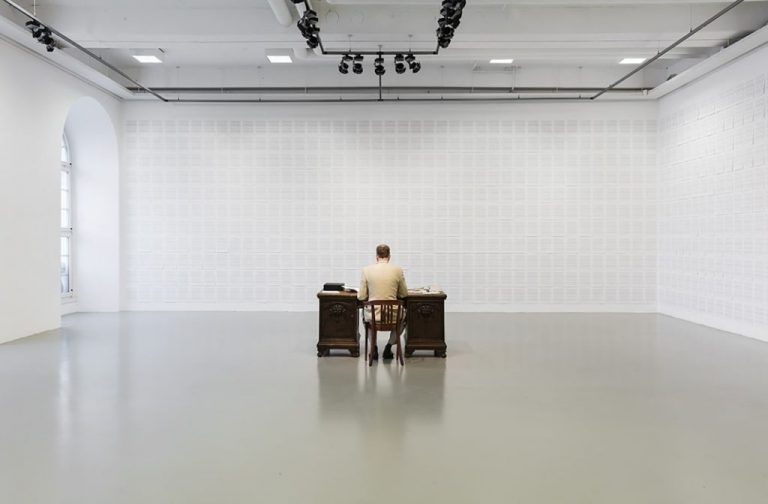Keeping with our virtual conversations, we have been checking in with our artists to understand how the recent pandemic has influenced their studio life and routine. This time, we spoke to Ari Benjamin Meyers to get a glimpse of the artist’s studio, work, and thought process.
I started playing the piano when I was four. I had told my parents that I wanted to be a magician when I grew up but they heard musician and so they started me on piano lessons. This probably has something to do with the fact that my father is a professional musician. For years as I was learning Bach and Mozart I was wondering: when do we start with the magic tricks?
That would be my Grotrian-Steinweg grand piano from 1908. It’s quite old, it can’t even really be properly tuned anymore but it’s the beating heart of the studio.
Whatever Mahlzeit, the café next to my studio, is serving.
ANY ONLINE RECOMMENDATIONS?
I think ICA Daily is a great new format that has sprung up. Each day curators and staff of the ICA give their recommendations for talks, texts, music and just whatever they find interesting at the moment. What I like is that it feels personal even in the virtual space. I’ve also been fascinated by the growing collection of what until only recently would have been considered quite bizarre: live performances played to empty halls. Local examples include the Berlin Philharmonic (with the conductor at the end often bowing, to no-one) and the Volksbühne Berlin (including recently a stream of my own filmed version of an excerpt from Forecast, performed at a louder volume than would ever be allowed with an audience). Performing for nobody: one might declare it a new performative mode, very much of our time and with implications for both the performers and the work. These performances and others like them may be moving in and of themselves but the act itself of watching at home, usually alone, – a disembodied audience – serves as an oddly unsettling and transfixing testament to our current situation.

Sunday
Monday
Tue – Thu
Friday
Saturday
Closed
By appointment only
11:00 – 18:00
11:00 – 14:00
11:00 – 14:00
Design by The-Studio
Code By Haker Design